SUMMARY
This is AI generated summarization, which may have errors. For context, always refer to the full article.
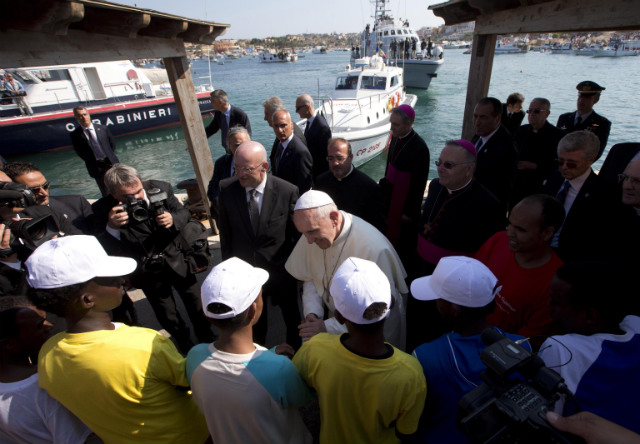
MANILA, Philippines (UPDATED) – “Today has anyone wept in our world?”
Stirring consciences, Pope Francis has challenged humanity to bring goodwill to the “peripheries” of society, including situations of suffering.
What can Filipinos learn from Francis after the destruction wrought by Typhoon Ruby (Hagupit), and a month before his Philippine trip in January 2015? (READ: #ReliefPH for #RubyPH: Filipinos helping Filipinos)
Since his election in March 2013, the Pope has urged the world to reawaken a “sense of responsibility for our brothers and sisters.” He has also stressed the need for Christian charity – not merely “social-conscience calming activities” that allow one “to feel good about oneself.”
Rappler compiles 7 of the Pope’s best quotes on disaster and charity.
‘Not our responsibility’?
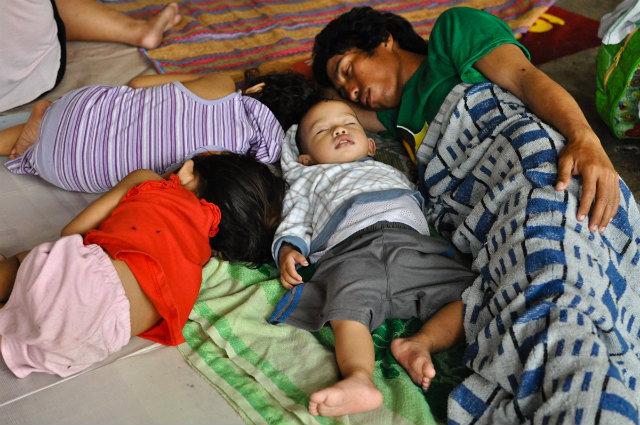
“Today no one in our world feels responsible; we have lost a sense of responsibility for our brothers and sisters. We have fallen into the hypocrisy of the priest and the Levite whom Jesus described in the parable of the Good Samaritan: we see our brother half dead on the side of the road, and perhaps we say to ourselves: ‘poor soul…!’ and then go on our way. It’s not our responsibility, and with that we feel reassured, assuaged.”
(Homily during Pope Francis’ visit to Lampedusa, July 8, 2013)
Living in ‘soap bubbles’
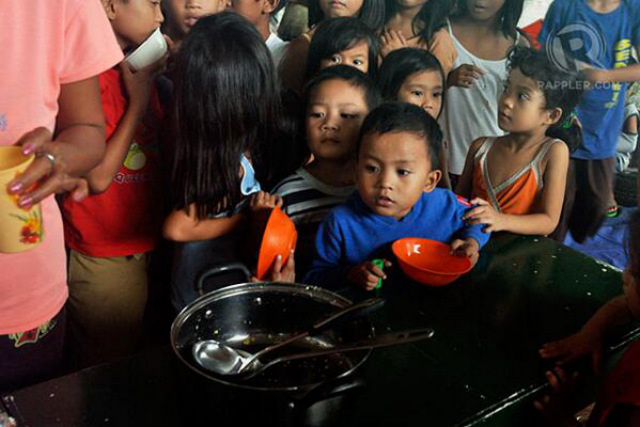
“The culture of comfort, which makes us think only of ourselves, makes us insensitive to the cries of other people, makes us live in soap bubbles which, however lovely, are insubstantial; they offer a fleeting and empty illusion which results in indifference to others; indeed, it even leads to the globalization of indifference. In this globalized world, we have fallen into globalized indifference. We have become used to the suffering of others: it doesn’t affect me; it doesn’t concern me; it’s none of my business!”
(Homily during Pope Francis’ visit to Lampedusa, July 8, 2013)
‘Has anyone wept?’
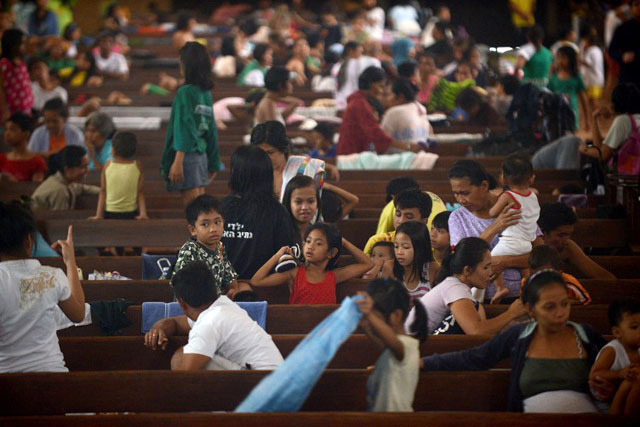
“Has any one of us grieved for the death of these brothers and sisters? Has any one of us wept for these persons who were on the boat? For the young mothers carrying their babies? For these men who were looking for a means of supporting their families? We are a society which has forgotten how to weep, how to experience compassion – ‘suffering with’ others: the globalization of indifference has taken from us the ability to weep.
“Let us ask the Lord to remove the part of Herod that lurks in our hearts; let us ask the Lord for the grace to weep over our indifference, to weep over the cruelty of our world, of our own hearts, and of all those who in anonymity make social and economic decisions which open the door to tragic situations like this. ‘Has any one wept?’ Today has anyone wept in our world?”
(Homily during Pope Francis’ visit to Lampedusa, July 8, 2013)
‘People are disposed of’
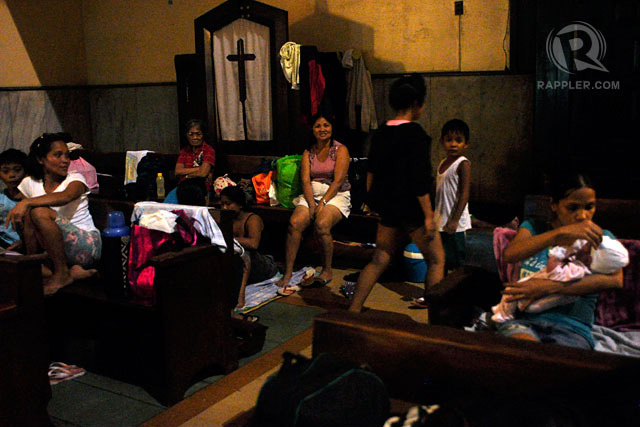
“If you break a computer it is a tragedy, but poverty, the needs, the dramas of so many people end up becoming the norm. If on a winter’s night, here nearby in Via Ottaviano, for example, a person dies, that is not news. If in so many parts of the world there are children who have nothing to eat, that’s not news, it seems normal. It cannot be this way! Yet these things become the norm: that some homeless people die of cold on the streets is not news. In contrast, a 10-point drop on the stock markets of some cities, is a tragedy. A person dying is not news, but if the stock markets drop 10 points it is a tragedy! Thus people are disposed of, as if they were trash.
“This ‘culture of waste’ tends to become the common mentality that infects everyone. Human life, the person is no longer perceived as a primary value to be respected and protected, especially if poor or disabled, if not yet useful – such as the unborn child – or no longer needed – such as the elderly.”
(Pope Francis’ general audience, June 5, 2013)
The poor need us ‘in the flesh’
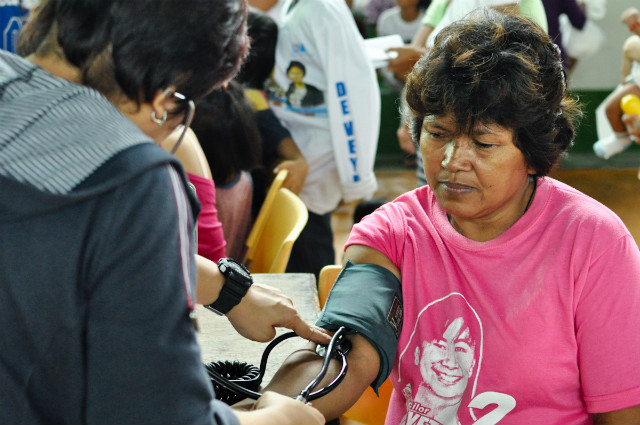
“In Christianity, the attitude we must have toward the poor is, in its essence, that of true commitment. And He added something else: this commitment must be person to person, in the flesh. It is not enough to mediate this commitment through institutions, which obviously help because they have a multiplying effect, but that is not enough. They do not excuse us from our establishing personal contact with the needy. The sick must be cared for, even when we find them repulsive and repugnant. Those in prison must be visited… It is terribly difficult for me to go to a prison because of the harshness of life there. But I go anyway, because the Lord wants me to be there in the flesh, alongside those in need, in poverty, in pain.”
(“On Heaven and Earth” by Pope Francis, then Cardinal Jorge Mario Bergoglio, and Abraham Skorka)
Christian charity vs ‘feel-good’ aid
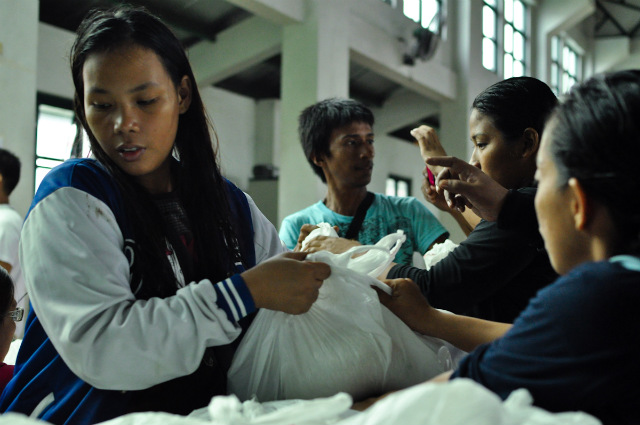
“Christian charity is the love of God and neighbor. It can begin with aid, but it cannot stop at fundraising events. These are things that are called works of charity when, in reality, they are social-conscience calming activities. These kinds of programs are carried out in order to feel good about oneself, but love always requires a person to go out from himself, to truly give oneself to others. The person I intend to love needs me to put myself at their service…
“Sometimes things are done in the name of charity that are not charitable; they are like crude caricatures of a good intention. There is no charity without love, and if vanity is part of helping the needy, there is no love; it is feigned charity.”
(“On Heaven and Earth” by Jorge Mario Bergoglio and Abraham Skorka)
Working for others
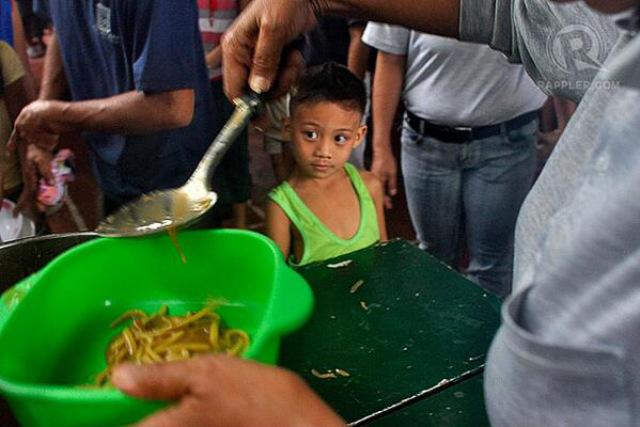
“I do not have any doubt that we must get our hands dirty.”
(“On Heaven and Earth” by Jorge Mario Bergoglio and Abraham Skorka)
– Rappler.com
Join Rappler in a 100-day countdown to Pope Francis’ visit to the Philippines: a journey from the Vatican to Tacloban. Tweet us your thoughts using the hashtag #PopeFrancisPH!
Add a comment
How does this make you feel?
There are no comments yet. Add your comment to start the conversation.